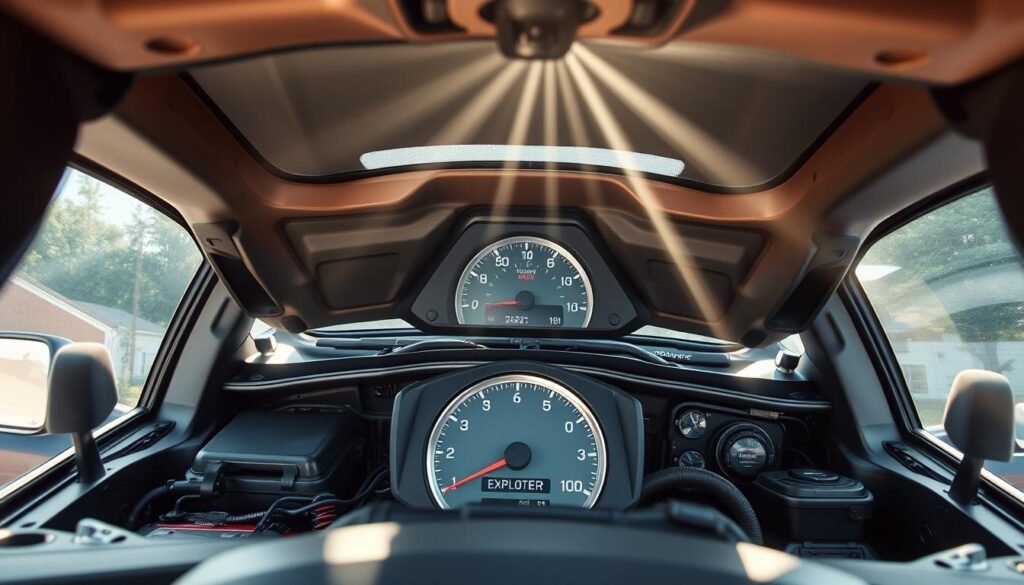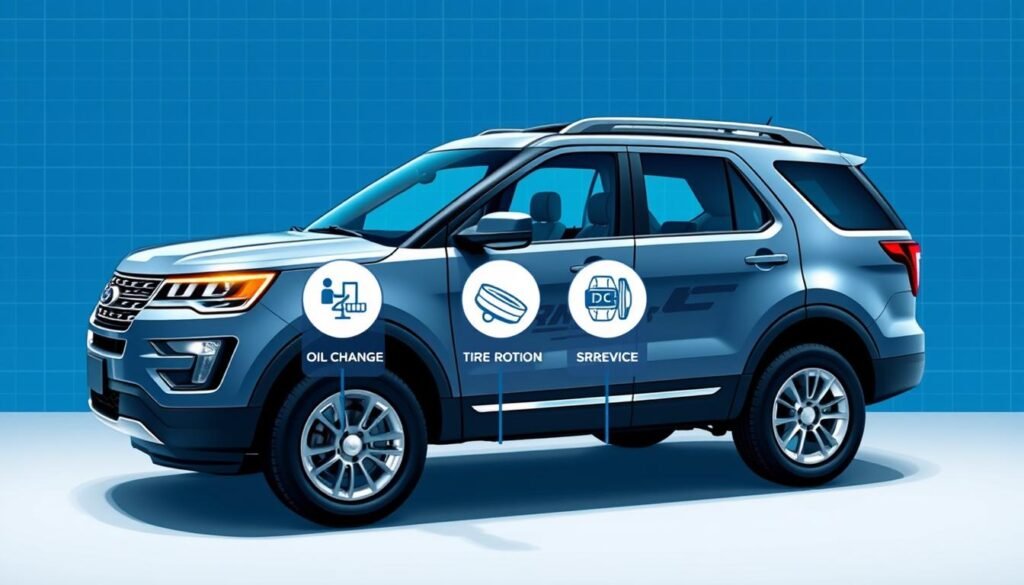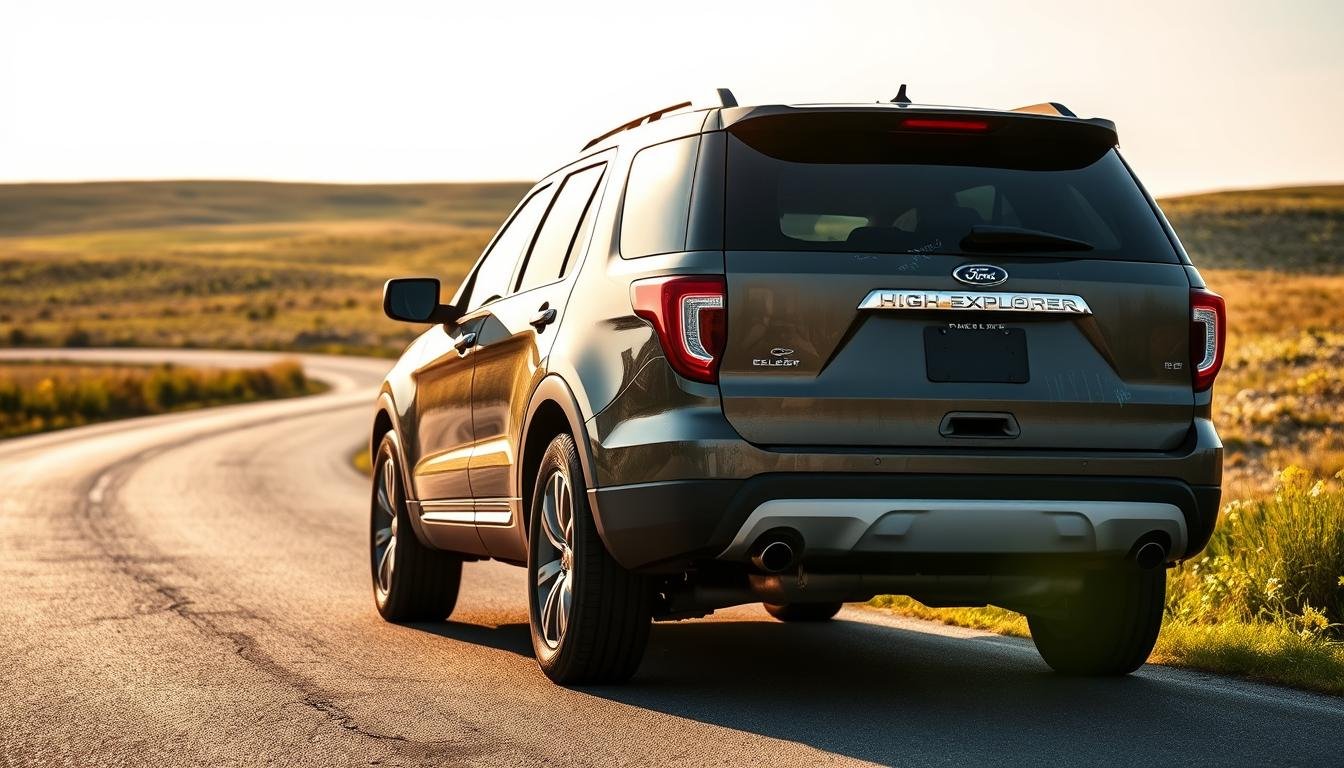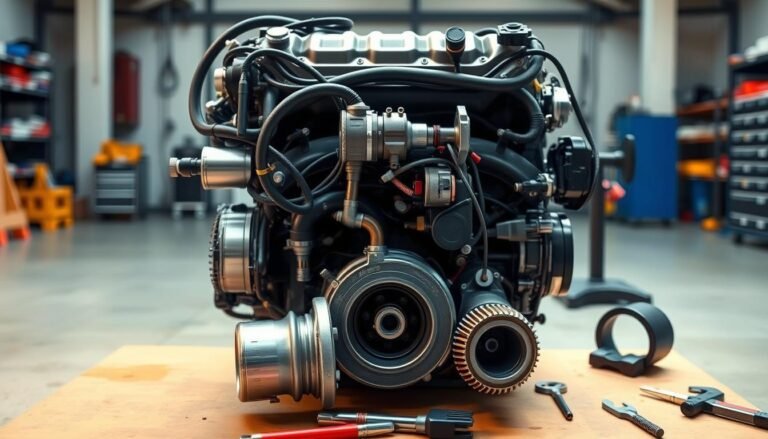How Long Do Ford Explorers Last? Lifespan Miles & Better 9 Maintenance Tips
A Ford Explorer typically lasts from 150,000 to over 200,000 miles. This range varies based on maintenance, how you drive, and the environment.
To make sure your Ford Explorer keeps running well, regular check-ups, safe driving, and quick repairs are key.
In this article, we’re going to talk about how long Ford Explorers usually last. We’ll look at their overall strength and what affects their lifespan, like upkeep and driving conditions.
You’ll learn the expected miles for different models and how keeping up with maintenance can help.
We’ll also cover what to think about when buying a used Explorer. With this knowledge, you’ll be better equipped to keep your SUV going strong for a long time.
Introduction To Ford Explorer Longevity
Thinking about getting a Ford Explorer? Knowing how long it can last is key. The life of a Ford Explorer changes a lot depending on how you take care of it and how you drive.
If you look after your Ford Explorer well, it can run for 10 to 20 years. This shows just how long-lasting it can be.
By keeping up with maintenance and good driving habits, you can make your car last even longer.
What is The Ford Explorer Lifespan?
The lifespan of a Ford Explorer is something many want to know. It helps people make smart choices about keeping it in good shape or selling it.
Usually, these cars last between 80,000 to 200,000 miles. How long they last depends on several factors.
Average Lifespan of Ford Explorers
Many Ford Explorers go beyond 200,000 miles. Some even reach over 300,000 miles with good care.
This shows how well Ford makes these vehicles and the importance of maintaining them.
Factors Influencing Longevity
Several things play a big part in how long a Ford Explorer lasts. These include:
- Driving Style: Gentle driving habits tend to enhance longevity, whereas aggressive driving can lead to premature wear.
- Maintenance Practices: Regular preventive maintenance, including oil changes and fluid checks, is essential for extending life.
- Driving Environment: Hard driving conditions, such as frequent off-roading or extreme weather, shorten the vehicle’s lifespan.
- Model Year: Newer models often incorporate improved technology and materials, which can boost longevity.

How Long Do Ford Explorers Last?
The life of your Ford Explorer has a big impact on your ownership. Looking into how long do ford explorers last, we see that maintenance is key.
Most owners see their SUVs lasting between 80,000 and 200,000 miles. Some even hit 300,000 miles with good care.
Expected Mileage For Ford Explorers
When thinking about the ford explorer mileage expectancy, remember a few important things.
Keeping up with oil changes, tire rotations, and check-ups is vital. Staying on top of these can help make your Ford Explorer last longer, giving you a reliable ride for years.

Ford Explorer Durability Across Models
The durability of Ford Explorers varies a lot between models. It’s due to the engineering choices and technological advancements over time.
Earlier Explorers often face more mechanical problems than the newer ones. These issues mostly come from older processes which did not use today’s improved materials and designs.
For example, recent models have better electronic systems and materials. This leads to stronger structure and better performance.
If you care about reliability in a Ford Explorer, it’s key to research different model years.
Knowing what each model offers helps you make better decisions, whether you’re buying or planning to keep the car for a while.
Here is a summary that shows how durability and reliability change across various Ford Explorer models:
| Model Year | Durability Features | Common Issues | Reliability Rating |
|---|---|---|---|
| 1991-1994 | Initial build quality, simple design | Transmission problems | Moderate |
| 2000-2005 | Better materials, improved safety features | Suspension concerns | Good |
| 2011-2015 | Advanced technology integration | Fuel system issues | Very Good |
| 2020-present | Enhanced safety and technology features | Minimal reported problems | Excellent |
Maintenance Tips For Maximizing Longevity
To keep your Ford Explorer running well, stick to a regular maintenance plan. Following the ford explorer maintenance schedule boosts its performance and avoids mechanical issues.
Here are key maintenance tips for your car care.
Essential Maintenance Practices
To keep your Ford Explorer in top shape, try these important maintenance tips:
- Regular Oil Changes: Change the oil and filter as the maker suggests. This keeps your engine running smoothly.
- Tire Rotations: Rotate tires every 5,000 to 7,500 miles. This helps them wear evenly and last longer.
- Fluid Checks: Frequently check and refill brake, coolant, transmission, and power steering fluids.
- Brake Inspections: Regularly reviewing brake pads, rotors, and fluid keeps your brakes working well.
- Battery Maintenance: Look for corrosion on battery terminals and keep the battery secure. Replace it when needed.
Following The Ford Explorer Maintenance Schedule
Your owner’s manual has a detailed maintenance schedule for your Ford Explorer. Using it can prevent big issues. Important services include:
| Service | Frequency |
|---|---|
| Oil Change | Every 5,000 – 7,500 miles |
| Tire Rotation | Every 5,000 – 7,500 miles |
| Brake Inspection | Every 15,000 miles |
| Fluid Check | Every 5,000 miles |

Keeping up with these maintenance tasks and the schedule ensures your Ford Explorer stays reliable.
Regular care avoids expensive repairs. This makes your Ford Explorer a trustworthy vehicle for all your journeys.
Driving Style and Its Impact on Durability
Your way of driving greatly affects how long your Ford Explorer lasts. Quick starts and hard stops can harm important parts like the brakes and transmission.
This can make your car wear out faster. Driving gently is safer and saves gas. Keep your speed steady and slow down softly to make your Ford Explorer last longer.
Small changes, such as paying attention to traffic and avoiding quick moves, can significantly increase your SUV’s life.

Checking your car’s condition and driving wisely helps keep your Ford Explorer in good shape.
Use light acceleration, smooth steering, and easy braking every day. This way, you not only improve your driving but also help your vehicle stay strong and last longer.
Environmental Factors Affecting Ford Explorer Lifespan
The lifespan of your Ford Explorer is greatly influenced by the environment it faces.
Conditions like extreme weather can really impact its durability. This is especially true if the vehicle is often used in harsh settings.
- Driving on rough terrain can cause excessive wear on suspension components.
- Extreme temperatures affect engine performance and battery life.
- Areas with heavy snowfall and the use of road salt can lead to corrosion.
Knowing these factors can prompt you to take care of your vehicle. It’s critical to clean it regularly. This helps in removing salt and other harmful substances.
In cold areas, it’s a good idea to apply protective coatings. These help guard your Ford Explorer against damage during winter.
To extend your Ford Explorer’s life, pay attention to how these conditions affect it. By adjusting how you drive and taking care of the vehicle, you can make it last longer.
| Environmental Condition | Potential Impact | Mitigation Strategy |
|---|---|---|
| Rough Terrain | Increased suspension wear | Regular inspections and maintenance |
| Extreme Weather | Engine strain, battery issues | Routine checks and adjustments as needed |
| Road Salt Exposure | Corrosion and rust | Frequent washing and protective coatings |
Common Issues Affecting Ford Explorer Reliability
Knowing the common issues with Ford Explorers can improve your ownership experience. Being aware lets you find and fix problems early, boosting reliability.
The biggest issues include transmission and engine problems, especially with the timing chain. Here’s a closer look at these challenges.
Transmission Problems in Ford Explorers
Transmission troubles can cause big operational problems for Ford Explorers. You might notice:
- Delayed or rough shifting
- Unusual noises while changing gears
- Warning lights on the dashboard
Changing your transmission fluid regularly and inspecting the transmission can prevent these problems. Catching issues early can keep you from spending a lot on repairs later.
Engine and Timing Chain Issues
Engine issues are a major concern for reliability in Ford Explorers. Timing chain problems might include:
- Engine rattling sounds
- Check engine light activation
- Performance degradation
It’s important to service your engine regularly to quickly handle timing chain issues. This early action can stop bigger, more expensive problems in the future.
Ford Explorer Mileage Expectancy Over Time
The mileage expectancy of a Ford Explorer is heavily influenced by how it’s used and maintained.
Owners can expect to hit key milestones as their vehicle gets older. Knowing these milestones helps plan for repairs and replacements.
Once a Ford Explorer reaches around 150,000 miles, repairs become more common unless you’ve been proactive. Good maintenance can significantly extend its life past this point.
| Mileage Range | Typical Condition | Common Maintenance Needs |
|---|---|---|
| 0 – 50,000 miles | Excellent | Routine checks, oil changes |
| 50,001 – 100,000 miles | Good | Tire rotations, brake inspections |
| 100,001 – 150,000 miles | Fair | Fluid replacements, battery checks |
| 150,001 – 200,000 miles | Needs attention | Major repairs may occur, timing belt check |
By being proactive with maintenance, you can greatly improve your Ford Explorer’s mileage expectancy. Keeping informed about your vehicle’s needs will help it run well for many years.
Evaluating Used Ford Explorers or Reliability
When looking at a used Ford Explorer, it’s key to check its reliability. Start by reviewing the maintenance records.
A well-maintained vehicle signifies a more reliable performance. Also, engage with past owners or check reviews online.
This can help you learn about any common issues. Checking the mileage is critical too. But remember, a high-mileage vehicle can still be reliable if it’s well-maintained.
To help in your search, here’s a checklist for evaluating used Ford Explorers:
- Examine maintenance records for completeness and consistency.
- Interview previous owners to discuss any known issues.
- Inspect the exterior and interior for signs of neglect.
- Take the vehicle for a test drive to assess handling and performance.
- Check for recalls and ensure they have been addressed.
This checklist is crucial for evaluating used Ford Explorers. By following these steps, you’re more likely to find a dependable model that fits your needs.
Conclusion
To sum up, how long a Ford Explorer lasts depends on a few things. These include how well it’s taken care of, how it’s driven, and the environment.
Regular care and fixing problems quickly are key to making your Explorer last longer.
Also, knowing your Explorer’s specific features helps you understand what it can do and how long it might last. This knowledge lets you make smart choices to keep it running well.
In the end, taking care of your Explorer and driving it carefully can make it last a lot longer.
Being informed and proactive is important. This way, you can enjoy your Explorer for many years to come.
FAQs
Q: How long can a Ford Explorer last?
A: A well-cared-for Ford Explorer might last from 10 to 20 years. It can go over 300,000 miles with good maintenance and driving habits.
Q: What is the average lifespan of Ford Explorers?
A: The average lifespan ranges from 80,000 to 200,000 miles. Newer models might last longer with good care.
Q: What factors influence the longevity of a Ford Explorer?
A: Regular maintenance, how you drive, and where you drive play a role. Extreme weather and rough roads can impact its lifespan.
Q: How does driving style affect my Ford Explorer’s lifespan?
A: Driving hard with fast starts and sudden stops can wear out your car faster. It puts more stress on important parts.
Q: What maintenance practices are essential for maximizing longevity?
A: Keep up with oil changes, tire rotations, and checking brakes. Follow the car maker’s maintenance guide for the best results.
Q: Are there common issues that could affect my Ford Explorer’s reliability?
A: Transmission failures and timing chain issues are common. Fixing problems early helps avoid expensive repairs later.
Q: How can I evaluate the reliability of a used Ford Explorer?
A: Check the car’s service history, talk to past owners, and confirm the mileage. This helps you make a smart choice.
Q: What is the expected mileage expectancy for Ford Explorers?
A: If you take good care of your Ford Explorer, it should last between 80,000 to 200,000 miles before needing major work.







